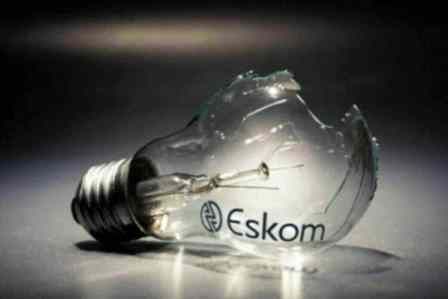
Say goodbye to Eskom as you know it
By: Staff Writer - MyBrodband
Former Eskom CEO André de Ruyter said the private sector will replace Eskom and take over electricity generation in South Africa.
De Ruyter made this prediction during his keynote address at the PSG Financial Services Annual Conference on 8 May 2024.
He said that while Eskom will always have a role in South Africa’s electricity sector, its future role will largely be limited to transmission.
The private sector has more money and resources and is more capable and efficient at generating electricity than Eskom.
This means the private sector will be able to supply electricity to South Africa more efficiently and cheaply than Eskom currently does.
De Ruyter urged the government to avoid sinking too much money into Eskom’s ageing and deteriorating coal-fired power stations.
Instead, the money would be better spent extending the utility’s transmission grid to allow the private sector to take over generation.
Renewable energy projects in South Africa cannot connect to the grid because of Eskom’s lack of grid capacity and chronic underinvestment.
Eskom will need to triple the capacity of its grid within the next decade, at a cost of over R100 billion, to allow new generation projects to come online.
“The grid is becoming the bottleneck, especially in high-resource areas with wind and solar resources,” Scatec Sub-Saharan Africa GM Jan Fourie said.
The Western Cape, Eastern Cape, and Northern Cape, which have rich renewable resources, do not have the grid capacity to distribute electricity to the rest of the country.
The grid in these areas can only carry limited load, which is insufficient for large-scale projects such as Scatec’s.
De Ruyter’s latest comments echo his previous message to South Africans that they should let go of their nostalgia for the “Eskom of old”.
In January, De Ruyter told Nuuspod that the power utility will continue to shrink and transform into a transmission business.
The only logical outcome of Eskom’s reform and restructuring is that the company will be unbundled into three divisions — generation, transmission and distribution.
“Eskom will continue to generate electricity for a considerable time. However, it will become smaller as coal power stations reach the end of their lifespan and are decommissioned,” he said.
De Ruyter’s views align with renowned economist Dawie Roodt’s views that Eskom’s generation and distribution divisions are slowly dying.
Roodt said Eskom will go the same way as South African Airways and the South African Post Office.
“Only the transmission part will remain, and the rest of Eskom will just slowly die and come to an end,” he said.
Roodt previously explained that Eskom is completely bankrupt. “It has been operationally and financially run into the ground. It does not work anymore,” he said.
Eskom’s debt exceeds R420 billion. It became unsustainable, forcing the state to take over a large chunk of the debt.
Roodt added that around 40,000 people work at Eskom with an average salary of R70,000 per month.
“Last year, Eskom employees received a 7% increase. It is irresponsible. These workers are already overpaid,” he said.
Eskom’s collapse also means it cannot provide enough electricity to keep the lights on, hampering economic growth.
Roodt said Eskom’s poor performance means the private sector is taking over its functions out of necessity.
“Eskom is poorly managed and cannot provide reliable electricity. The private sector is stepping in to fulfil this duty,” he said.
“Eskom has already lost a third of its market. It will continue to lose customers and eventually come to an end,” Roodt said.
News Category
- International retailers
- On the move
- Awards and achievements
- Legislation
- Wine and liquor
- Africa
- Going green
- Supplier news
- Research tools
- Retailer trading results
- Supply chain
- Innovation and technology
- Economic factors
- Crime and security
- Store Openings
- Marketing and Promotions
- Social Responsibility
- Brand Press Office
Related Articles

Eskort is celebrating 107 years

UK poultry industry as exports to South Africa ...

Playful bubble tea shops launch in selected Che...

Consumer Commission launches investigation into...


